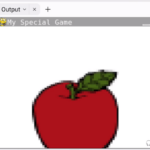Welcome to this engaging and value-packed tutorial on Python list comprehensions! Here we aim to ignite the spark of curiosity in you, whether you’re just beginning your coding journey or looking for ways to level up your coding skills.
Table of contents
Unraveling Python List Comprehensions
What are Python list comprehensions? In the simplest terms, Python list comprehensions provide agile, succinct ways to generate lists in Python, condensing for-loops and if statements into single, readable lines of code.
Why do Python List Comprehensions Command Attention?
List comprehensions in Python are a valued tool for their clean, efficient, and pythonic behavior.
Before diving into the nitty-gritty of list comprehensions, it’s worth asking – why should you learn about them?
- List comprehensions are an integral part of Python, and deep understanding can contribute to better code comprehension and structure.
- They can make your code more readable and concise, thereby enhancing its maintainability.
- List comprehensions run faster than traditional loops, offering an efficient way to write code.
Now we have addressed the ‘what’ and the ‘why’, let’s dive into the ‘how’!
Basics of Python List Comprehensions
To kick-start our journey, let’s understand the basic structure of a list comprehension in Python:
[expression for element in iterable if condition]
It’s easy once you break it down: the ‘expression’ is based on ‘element’, which loop through each item (‘element’) in an ‘iterable’ (like a list or range), and ‘if condition’ filters the output.
Example 1: Squares of Numbers
Let’s create a list of squares of numbers from 1 to 5 using list comprehension:
numbers = [1, 2, 3, 4, 5] squares = [number**2 for number in numbers] print(squares) # Output: [1, 4, 9, 16, 25]
Example 2: List of Strings Containing a Substring
You can also use it to perform tasks such as creating a list of strings that contain a specific substring:
genres = ["rock", "pop", "indy rock", "pop rock", "jazz rock"] rock_genres = [genre for genre in genres if "rock" in genre] print(rock_genres) # Output: ['rock', 'indy rock', 'pop rock', 'jazz rock']
Advanced Usage of Python List Comprehensions
Now that we have covered the basics and created some basic list comprehensions, we will look at more complex uses of this powerful feature.
Example 3: Matrix Transpose
We can use list comprehension in Python for operations like finding the transpose of a matrix:
matrix = [[1, 2, 3], [4, 5, 6], [7, 8, 9]] transpose = [[row[i] for row in matrix] for i in range(3)] print(transpose) # Output: [[1, 4, 7], [2, 5, 8], [3, 6, 9]]
Example 4: Flattening a List
Another useful application of list comprehension is flattening a list of list. Let’s look at how it can be done:
data = [[1, 2, 3], [4, 5], [6]] flatten = [item for sublist in data for item in sublist] print(flatten) # Output: [1, 2, 3, 4, 5, 6]
By mastering Python’s list comprehensions, you’ll be able to write clear, efficient, and pythonic code that delivers impressive results.
Are you ready to bring your Python game to the next level? Here at Zenva, we’re excited to help guide your journey.
List Comprehensions with Conditional Statements
You can add conditions to list comprehensions, making them even more powerful. Now, let’s dive deeper into conditional statements within list comprehensions.
Example 5: Filtering Using If Condition
Let’s use Python’s list comprehension to create a list comprising the even numbers from an existing list:
numbers = [1, 2, 3, 4, 5, 6, 7, 8, 9, 10] even_numbers = [num for num in numbers if num % 2 == 0] print(even_numbers) # Output: [2, 4, 6, 8, 10]
Example 6: Using If-Else Condition
You can also include if-else conditions in Python’s list comprehensions to perform more complex tasks. Let’s recode the previous list, marking numbers as “even” or “odd”:
numbers = [1, 2, 3, 4, 5, 6, 7, 8, 9, 10] type_numbers = ["even" if num % 2 == 0 else "odd" for num in numbers] print(type_numbers) # Output: ['odd', 'even', 'odd', 'even', 'odd', 'even', 'odd', 'even', 'odd', 'even']
List Comprehensions with Nested Loops
List comprehensions allow nested loops, providing a smart and readable way to iterate through complex structures.
Example 7: Cartesian Product
A classic example of using list comprehension with two nested loops is computing a cartesian product. Let’s create a cartesian product of two lists:
listA = ['a', 'b', 'c']
listB = [1, 2, 3]
product = [(a, b) for a in listA for b in listB]
print(product) # Output: [('a', 1), ('a', 2), ('a', 3), ('b', 1), ('b', 2), ('b', 3), ('c', 1), ('c', 2), ('c', 3)]Example 8: Generate Two-Dimensional List
You can generate two-dimensional lists through list comprehension in Python. Let’s try creating a 3×3 identity matrix:
matrix = [[1 if col == row else 0 for col in range(3)] for row in range(3)] print(matrix) # Output: [[1, 0, 0], [0, 1, 0], [0, 0, 1]]
Understanding and utilizing Python list comprehensions will streamline your Python programming output, boosting it to new heights. At Zenva, we are committed to helping you understand how they work fundamentally and doing wonders in your programming tasks.
Where to go next with Python List Comprehensions
Amazing job! You’ve now covered the basics of list comprehensions in Python. But don’t stop here – there’s a lot more to learn and master.
Check out our comprehensive Python Mini-Degree which covers coding basics, algorithms, object-oriented programming, game development, and app development. With step-by-step projects and quick challenges, this program is designed to cater to both beginners and more experienced programmers, providing a well-rounded learning experience.
Beyond understanding the basics, we provide content for intermediate and professional learners, allowing you to progress from beginner to professional at a pace that suits you. Our curriculums include real-world projects, enabling learners to create games and apps and prepares them for success in their career pursuits.
You can also explore our vast collection of Python courses to find more resources to advance your knowledge and skills in Python programming.
Conclusion
Python list comprehensions are incredibly powerful tools and mastering them will open a new horizon of opportunities for you as a programmer. By knowing how to create efficient and maintainable code snippets, you’ll be able to take on more complex tasks and impress future employers or clients with your skills.
Ready to press forward? Your next step could involve our Python Mini-Degree, a designed learning path that covers everything from coding basics and algorithms to game and app development. Keep honing your skills, stay curious, and remember, we at Zenva are here to help foster your success in the world of coding!
Did you come across any errors in this tutorial? Please let us know by completing this form and we’ll look into it!

FINAL DAYS: Unlock coding courses in Unity, Godot, Unreal, Python and more.







